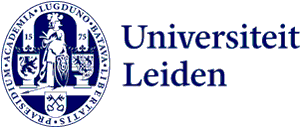
Using online platforms for citizen participation: Not a magic cure for inclusivity
You may have noticed this happening more often: your municipality sends you an online questionnaire to find out your opinion on the renovation of a certain area or the design plans for a new district. But how inclusive are these online platforms where citizens can participate in decisions on government plans and policies? And how does the design of the platforms impact citizen participation? This is the subject of Annelieke van den Berg’s PhD research project. She will defend her dissertation on 5 October.

It seems so easy. All kinds of obstacles disappear when the government uses online means to ask citizens for their input. They can participate where and when they like and it takes little time. For the quality and legitimacy of direct citizen participation it is important that is easy for all inhabitants to participate and not just the usual suspects such as senior citizens and higher educated people. Annelieke van den Berg was interested to find out if the assumption was correct that online platforms do indeed help increase the diversity and number of participating citizens. ‘There isn’t much known about the effects of digital interaction between the government and its citizens.’
Online platforms are not a magic cure
The PhD candidate conducted most of her research in the municipality of The Hague. ‘The population composition in The Hague is very diverse and the municipality is one of the frontrunners in the field of online participation platforms.’ The most important conclusion of her findings, according to Annelieke, is that online platforms are a valuable addition to the mix of options for organizing participation. Even though many of the same patterns in participation that occur offline also exist online. ‘It’s not a magic cure for inclusivity in direct participation.’

Topics should appeal
Look at young adults, for instance. It turns out that, online or not, they are still less inclined to participate. Even though you would expect that they would be more approachable digitally then other target groups. Annelieke looked into the underlying reasons. In focus groups, young adults indicated that they had no interest in participating when the topic did not appeal to them or that they are already receiving more than enough information online. It also matters a lot to them how the participation reaches them. ‘They don’t want to have to look for it, it should come up within their own network.’
The researcher believes that what applies to the municipality of The Hague, also applies to other municipalities. ‘Municipalities shouldn’t be worried that senior citizens are difficult to reach via online platforms. The elderly continue to be overrepresented in an online context and younger citizens under thirty-five are less likely to participate. There are a number or theoretical explanations for this.’

Valuable addition
The way in which a platform is designed also plays a role in citizen participation, she noticed. ‘’By means of a field experiment, by designing two different invitations, I noticed that relatively small changes can have an effect on who participates. I would like to recommend governments to carefully define the target group for participation and determine beforehand which groups of citizens will be more difficult to reach.’
In the design of the platform, you subsequently need to take into account what the most important beliefs of these groups are. ‘When the government is aware of the limitations regarding inclusivity on online platforms and acts accordingly to alleviate these limitation, online platforms will definitely become a valuable addition to the toolbox of administrators wanting to facilitate direct citizen participation.’

Crown on four years of hard work
With the defence in sight, the moment to reflect has arrived for Annelieke. ‘I see the promotion ceremony as the crown on four years of hard work and plan to enjoy it as much as possible. Apart from being given the opportunity to emerge yourself in a subject, it is also a period of enormous personal growth, because you are at the helm of such a substantial project. The support you receive can make or break the proces and I am incredibly happy with may promotors and copromotors who were always there for me. The most difficult thing form me was deciding when my work was good enough. There is always something about which you are insecure or where you would have liked to have done more. But after the defence, I look forward to the reception and dinner. I expect to wake up refreshed the next day knowing that my PhD track has finally come to an end.’
Text: Margriet van der Zee
